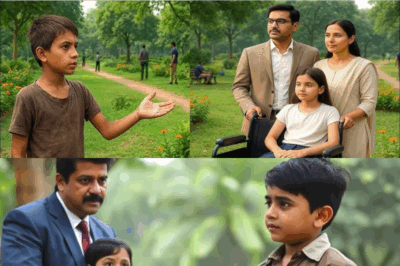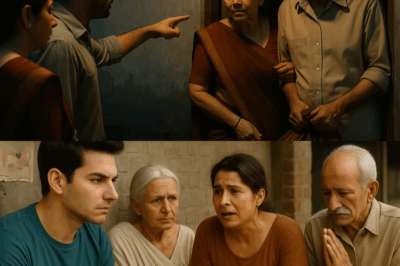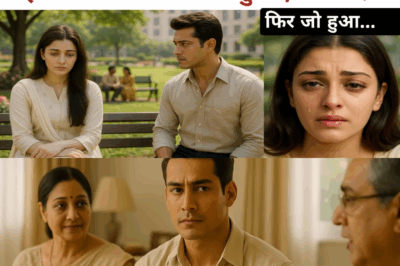A Nation in Shock: Broken Promises and Broken Lives in Tripura as TSR Jawan Allegedly Poisons His Own Daughter
Introduction
It is said that a parent will always protect their child, standing as a shield against the harsh realities of the world. Yet, sometimes, the shields we trust the most become the very weapons that shatter our innocence. This week, Tripura—a normally quiet northeastern state in India—was rocked by a horrific incident that exposed the deep-rooted gender bias still poisoning parts of our society.
In what is arguably one of the most chilling reminders of how far we have yet to go as a society, a man who once swore to protect the nation in uniform, allegedly took the life of his own one-year-old daughter, simply because she was a girl.
The Horrific Event: A Broken Family, A Broken Dream
On a seemingly normal Friday night in Khwai district’s Behlabari, the unthinkable happened. Rathindra Dev Varma, a jawan from the Tripura State Rifles (TSR), is accused of poisoning his infant daughter, Suhani. Allegedly, she was killed for no other reason than her gender.
Suhani’s mother, Mitali Dev Varma, recounts the nightmare with a voice weighed down by grief. According to her, she was visiting her sister’s house in Behlabari with her children. Rathindra seemed affectionate, offering to take their daughter out to buy her biscuits, and their nephew tagged along too.
Moments later, the nightmare began to unfold. Suhani started vomiting violently, suffered from diarrhea, and there was a strong, acrid medicinal smell from her mouth. Mitali, frantic, grabbed her husband and demanded to know what he had given their daughter. Rathindra denied poisoning Suhani, yet her condition deteriorated with alarming speed.
The family rushed her first to Khwai District Hospital before she was referred to GB Hospital in Agartala. There, doctors could only pronounce her dead on arrival. Another mother’s lap was left empty, another child lost to senseless cruelty born of prejudice.
A Society in Mourning, An Alarm for the Nation
As details became public, the community’s disbelief turned into sorrow and then boiling rage. This was not a random crime—Mitali revealed that Rathindra had, for years, resented his wife for giving birth to daughters instead of a son. She spoke of enduring taunts, threats, and even physical abuse. It paints a disturbing portrait: one where a man, entrusted to defend the country, could not overcome the biases that saw his own child as less than worthy.
When Rathindra was taken to the hospital during the daughter’s final moments, members of the public recognized him and nearly turned violent. Police intervened, managing to get the accused safely to the station before a mob could act.
For now, Rathindra is in police custody pending further investigation. Authorities await the results of the autopsy, which will confirm the presence of poison.
Beyond One Family: A National Tragedy
This story is not just about one tragic child, nor about one broken father. It is about the countless girls across India who are made to pay the price for being born daughters. In the land where slogans like “Beti Bachao, Beti Padhao” (Save the Daughter, Educate the Daughter) fill the air, every year thousands of girls still fall victim to old prejudices.
The headlines may have come from Tripura this week, but the echo is nationwide. Girls in India continue to face discrimination even before they see the world. Gender-selective abortion remains a problem. And if they are born, they often have to fight for the right to live, simply because of their gender.
Despite improvements and government schemes, incidents like this reveal that the battle for equality is far from over. Cultural attitudes—fueled by preference for sons for lineage, dowry customs, and century-old traditions—often still dictate real-life choices with tragic outcomes.
An Oath Betrayed
It is especially galling that Rathindra was a decorated member of the Tripura State Rifles, a force dedicated to the protection of citizens. In the very uniform sworn to stand guard at the frontiers, a monstrous prejudice festered unchecked at home. For Mitali and every parent enduring similar torment, the question is not just about the loss, but betrayal: How could a father, meant to be a shield, become the agent of destruction?
Mitali’s only demand now is for the harshest punishment. “This man in uniform deserves nothing less than the death penalty,” she says—her grief giving way to a cry for justice that rings out across the state.
A Call for Justice, and For Change
Public outrage is mounting. Debates on local radio, television, and social media highlight the need for drastic changes. The incident is being seen as an alarm bell: If daughters are unsafe even in their own homes, what hope do they have elsewhere?
Human rights organizations and concerned citizens are demanding not just justice for Suhani, but better counseling, psychological support for victims’ families, and aggressive campaigns to root out such misogynist thinking from society.
But many realize that no punishment—even the harshest—can reclaim the lost lives or undo the trauma. Lasting change must come from education, grassroots activism, and a cultural reset in how we view girls and women.
Why Does This Keep Happening?
Experts point out interlinked causes:
Deep-rooted patriarchy, where the birth of a son is celebrated and a daughter is rarely wanted.
Economic pressures—such as dowry—fuel the perception that girls are a burden.
Lack of awareness and effective law enforcement in rural and semi-urban areas.
Yet, change is possible. The story of Suhani—the tragic protagonist of a news cycle this week—must serve as a turning point, not just in outrage, but in everyday attitudes. For every father who endangers his daughter, there are millions who love and cherish theirs; it’s time those voices grow louder.
Conclusion: From Tragedy, a Chance for Reflection
Suhani’s brief life will remain a blot on the conscience of the community and, indeed, the country. The fight for gender equality cannot only be waged in newspapers, campaigns, or select urban spaces. It needs to reach the hearts and homes of every Indian.
True patriotism lies not just in protecting borders, but in protecting the innocent at home—regardless of gender.
News
छोटे से जज़्बे की बड़ी जीत: सागर की कहानी
छोटे से जज़्बे की बड़ी जीत: सागर की कहानी वाराणसी की भीड़भाड़ वाली गलियों में एक 8 साल का चंचल…
खोई पहचान, मिले रिश्ते: मुंबई से दिल्ली तक आरुषि की तलाश
खोई पहचान, मिले रिश्ते: मुंबई से दिल्ली तक आरुषि की तलाश ताज कोर्टयार्ड, मुंबई का सबसे आलीशान रेस्टोरेंट, आज रात…
परदेस की आंधी: दूरी, विश्वासघात और एक नई शुरुआत की कहानी
परदेस की आंधी: दूरी, विश्वासघात और एक नई शुरुआत की कहानी मुंबई जैसे सपनों के शहर से सैंकड़ों किलोमीटर दूर,…
नेकी का लौटता सिला: सड़क पर भीख माँगता एक बेटा और किस्मत का करिश्मा
नेकी का लौटता सिला: सड़क पर भीख माँगता एक बेटा और किस्मत का करिश्मा रामलाल कभी मशहूर कारीगर हुआ करते…
भाई-बहन का ये बंधन: एक स्टेशन, एक मुलाकात, एक नई शुरुआत
भाई-बहन का ये बंधन: एक स्टेशन, एक मुलाकात, एक नई शुरुआत दिल्ली के भीड़भाड़ वाले रेलवे स्टेशन के बाहर जनवरी…
एक रात, एक रहस्य, एक जिंदगी बदल देने वाली मुठभेड़
एक रात, एक रहस्य, एक जिंदगी बदल देने वाली मुठभेड़ शहर की चमकती रोशनी के बीच हजारों कहानियां चलती हैं।…
End of content
No more pages to load











